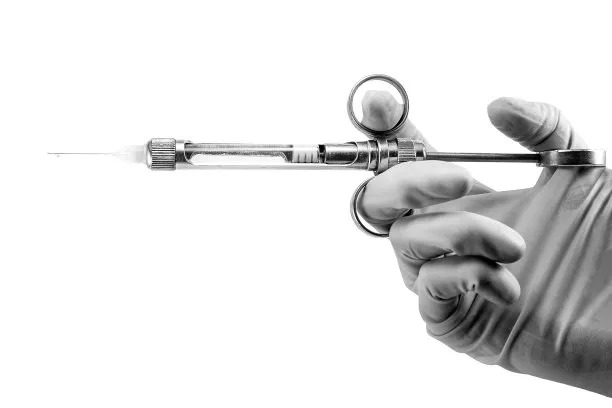Summary: Dental fillings are a common procedure for restoring teeth affected by decay or damage, but they require careful planning and consideration. Seeking optimal oral health and comfort goes beyond the treatment itself. Understanding the types of fillings available, assessing personal health history, preparing mentally for the procedure, and discussing potential post-treatment care are crucial. This article will provide essential precautions to take before getting dental fillings, ensuring that each patient can receive the best care possible and enjoy a smooth experience.
1. Understanding the Types of Fillings Available

Before undergoing any dental procedure, its important to be informed about the various types of fillings available. Dental fillings can be made from several materials, including amalgam, composite resin, gold, and ceramic. Each option has its unique properties, advantages, and drawbacks. For example, amalgam fillings are durable and cost-effective but may not offer the aesthetic appeal of tooth-colored composites.
Composite fillings, on the other hand, blend with the natural color of teeth, making them a popular choice among those looking for cosmetic benefits. Understanding these options helps patients make informed decisions that meet both their functional and aesthetic needs, ultimately influencing the long-term satisfaction with their dental work.
Finally, discussing the types of fillings with your dentist can provide insight into which material is best suited for your specific situation. Factors such as the location of the filling, the extent of decay, and personal preferences should be carefully weighed to achieve the best outcomes.
2. Assessing Personal Health History and Medication
Assessing personal health history is a vital step before getting dental fillings. Patients should provide their dentists with a comprehensive medical history, including any past dental issues, allergies, and existing medical conditions. Certain health problems, like diabetes or heart conditions, may affect treatment options and recovery.
Additionally, its crucial to disclose any medications you are currently taking. Some medications can influence healing time or increase the risk of complications during dental procedures. A transparent dialogue with your dentist about these factors can help them create a tailored approach that maximizes safety and effectiveness while minimizing discomfort.
In some cases, your dentist may recommend pre-procedural tests or consultations with your primary care physician to better understand your health status. Such proactive measures ensure that all precautions are taken into account and contribute to an overall positive experience during and after the dental filling procedure.
3. Preparing Mentally for the Procedure
Mental preparation is often an overlooked aspect of getting dental fillings. Anxiety or fear regarding dental procedures is common, and addressing these emotions can significantly enhance comfort levels. Understanding the procedure, what to expect, and the techniques used can help alleviate apprehension.
Consider visiting your dentist ahead of time to ask questions and discuss any concerns. Familiarizing yourself with the environment can also ease anxiety. Engaging in relaxation techniques, such as deep breathing or visualization, right before your appointment may further reduce stress.
Additionally, having a support person accompany you or even having calming music during the procedure may enhance your comfort. By taking these steps, you can foster a more positive mindset towards dental treatments, ultimately leading to a smoother experience and better overall oral health.
4. Discussing Post-Treatment Care and Expectations
Lastly, discussing post-treatment care and expectations is crucial before getting dental fillings. Understanding what to expect after the procedure can prepare you mentally and physically, ensuring that you follow the correct aftercare protocol for optimal recovery.
Your dentist should provide clear instructions on how to care for your newly filled tooth, which may include dietary recommendations, oral hygiene guidelines, and signs of complications to watch for. Being aware of these can help you maintain the longevity of the filling and avoid unnecessary discomfort.
Moreover, dont hesitate to inquire about follow-up appointments or check-ups. Regular dental visits play a significant role in maintaining your oral health and ensuring that the filling remains intact and functional. Being proactive in your dental care will lead to more successful outcomes and prolonged comfort.
Summary:
In summary, understanding the types of fillings available is instrumental in making informed decisions about dental care. Assessing personal health history and medication helps tailor the approach for safety and effectiveness. Moreover, mental preparation and discussing post-treatment care can significantly enhance the overall experience. Taking these essential precautions ensures not just a successful dental filling procedure, but also optimal oral health and comfort long after.
This article is compiled by Vickong Dental and the content is for reference only.
Vickong Dental
Vickong Dental is a large medical group established in Hong Kong in 2008 by professors from well-known medical universities in Guangdong and Hong Kong, as well as medical doctors from key national '985' universities (including Master's supervisors and senior professors). The chain of branches brings together expert dentists with PhDs and Master's degrees from Hong Kong and Mainland China, committed to providing high-quality dental treatment.
"Vickong Dental Practices the University Motto of 'Healing and Serving Society,' with a Stable Operation for Sixteen Years. It Has Been honored with Hong Kong Enterprise Leaders's Choice,' and is a Global Trusted Implant Center for the Nobel Implant System. Recommended by Hong Kong Metro Broadcast and Guangdong Television, it Serves Customers from Over Thirty Countries and Regions, Gaining the Trust and Favor of Citizens from the Guangdong-Hong Kong-Macau Greater Bay Area and Surrounding Cities.

Thousands of customers' unanimous praise
The most recognized and highly recommended dental service by customers in the Guangdong-Hong Kong-Macau Greater Bay Area
We Ensure You Receive Detailed Care and Attention Here
Hong Kong standards, Shenzhen prices, Your Trusted English-speaking dentists

Vickong Dental Medical-Grade Instrument Disinfection Process
Vickong Dental Medical-Grade Instrument Disinfection Process

Vickong Dental Chain: A Warm and Comfortable Environment for Treatment






Appointment Hours

Q&A
Why choose Vickong Dental?
Vickong Dental practices the university motto 「Medicine to Benefit Society」, with each branch bringing together highly qualified dentists with doctoral and master’s degrees from Hong Kong and the Mainland, and has maintained seventeen years of steady operation。Recipient of 「2024 Hong Kong Enterprise Leaders Brand」, 「2025 Hong Kong Enterprise Leaders Brand」, a Nobel Biocare Global Trusted Implant Center, and a brand recommended by Metro Radio Hong Kong and Guangdong TV。
To date, we have served customers from more than thirty countries and regions,earning exceptionally high word-of-mouth recognition and trusted recommendations from residents across the Guangdong-Hong Kong-Macao Greater Bay Area and surrounding cities
We have eight major branches in Zhuhai、Shenzhen,and a consultation and service assurance center in Hong Kong,so you can book a free consultation at any time for any questions,which is very reassuring.
If I do not accept the quotation after the CT scan, will I be charged??
No! As long as the actual treatment has not started, you will not be charged any fees.
Will there be any additional charges during the treatment process?
No, there won’t be any additional charges. Before treatment begins, we will clearly explain the treatment plan and its corresponding fees. Only after the patient agrees and signs the consent form will we proceed with the dental service.
Can I pay in Hong Kong dollars?
Yes. Vickong Dental accepts payment in Hong Kong dollars. The amount will be converted based on the exchange rate of the day, and the applicable rate will be clearly communicated to you in advance.
Can I reschedule my appointment at any time?
Yes. Please contact us via **WeChat** or **WhatsApp** as early as possible, providing your original appointment time and details, along with your preferred new date and time slot for rescheduling.













